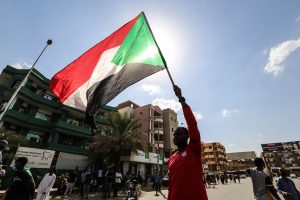Umamah Bakharia | ub@radioislam.co.za
2 min read
7 December 2022 | 11:15 CAT
On Monday, Sudan’s military and civilian opposition signed a framework agreement in Khartoum to end a severe political crisis that began with a coup led by Abdel Fattah al-Burhan in October 2021.

Photo credit: Daily Sabah
The framework agreement represents a significant step towards restoring Sudan’s democratic transition that was suspended since the coup. However, a civilian government’s prompt appointment must now follow this agreement’s signature.
However, speaking to Radio Islam International on this weeks ‘Media Lens’, analyst Ebrahim Deen argues that there is no mention in the agreement of transition.
“The military is still going to play a very big role, and there is no mention in the agreement about transitional justice, and that’s why what we’ve seen amongst sectors of the population since the agreement is large protests, especially in urban areas criticing the view,” he says.
The African Union, the Intergovernmental Authority on Development (IGAD) and the United Nations (UN) mediated the talks after much difficulty in getting the opposition to begin a dialogue.
But according to Deen, there was no media coverage of the regional dimensions of the crisis.
“This is because it can leverage support from neighbours such as Saudi Arabia, Eygpt, UAE and, going further, Russia, and that lack of focus means that the narrative has been shaped as just a domestic struggle when in fact, its similar to many of the Arab uprising,” he says.
Since the signing, Saudi Arabia, the US, the UAE and the UK welcomed Monday’s deal, saying they were working with partners “to coordinate significant economic support.”
Listen to this weeks ‘Media Lens’ with analyst Ebrahim Deen:







0 Comments